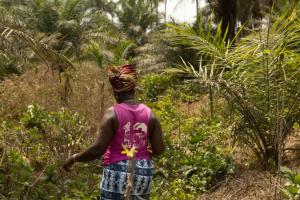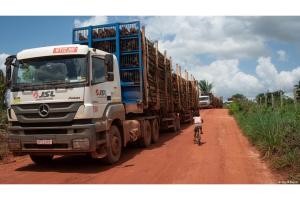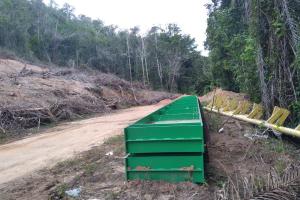Pulp and Paper
Large-scale tree monocultures to produce pulp and paper, along with the infrastructure and pulp mills that come with these plantations, have been expanding onto communities’ fertile lands. They have destroyed forests and grasslands, especially in Latin America, Asia and Southern Africa. The species used are fast-growing and not native to these countries. They include varieties of eucalyptus, acacia and pine trees.
Bulletin articles
27 June 2024
Behind every tree plantation developed for carbon offsets, there are external agents seeking to profit from increased control over the land. And while they all have the same colonial approach, these plantations can vary widely: they can be large-scale monocultures or schemes with smallholder farmers; they can include exotic species or native species; and some of them may even exist on paper only.
Bulletin articles
25 October 2023
Exchanges between activists put the voices of those who fight to defend their territories at the center of the conversation. In September, members of communities from Brazil and Mozambique united their struggles and connected their histories once again, helping to strengthen solidarity in the fight against industrial tree plantations.
Other information
25 October 2023
The network released an open letter in which it denounces the impacts of the plantations and the crimes committed by the companies. At the same time, they demand reparation and reaffirm resistance against tree monocultures.
Publications
15 September 2023
In this booklet we share basic information about GE trees, in particular about seven varieties of eucalyptus trees that have already been approved in Brazil. This is the first country besides China to approve the large-scale use of GE trees.
Publications
21 August 2023
Suzano is a Brazilian multinational company that produces cellulose and paper products from eucalyptus plantations. Read this booklet produced by the ‘Alert Against the Green Desert’ Network and find out important facts that are often hidden by this mega-company’s propaganda machine.
Other information
22 July 2023
DW news portal investigated ongoing socio-environmental conflicts in Brazil related to Suzano, which manages over a million hectares of eucalyptus plantations across the country and plans to almost double that in the next decade.
Action alerts
18 April 2023
We urge you to express solidarity with MST (Movement of Landless Rural Workers) and send an urgent message to the state government in order to prevent that 200 families will be evicted from a land occupation in a eucalyptus plantation area of the transnational pulp and paper company Suzano.
Action alerts
12 January 2023
Demand that the Suzano company stops destroying quilombola territories in the south of Bahia, Brazil
Bulletin articles
11 October 2022
The network that brings together movements, organizations and communities in the fight against tree plantations met in the Far South of the State of Bahia. This September 21st, it once again denounced the impacts of this violent and unjust model, which is based on large-scale plantations mostly for pulp export.
Bulletin articles
12 September 2022
The quilombola communities of Sapê do Norte, Brazil, are living a violent process with the expansion of large-scale eucalyptus monoculture. After many hardships, they started a process to take back their water and land. And the struggle to take back what is theirs continues. WRM talked to two quilombola activists to reflect on this difficult but fertile process of resistance.
Bulletin articles
16 June 2022
Quilombola Communities’ Resistance Against Suzano Company in the Southernmost part of Bahia, Brazil
A conversation with the president of the Volta Miúda Quilombola Association and of the Southernmost part of Bahia Quilombola Cooperative revealed how Suzano, the world’s largest paper and cellulose corporation, continues to operate with serious violations and illegalities. Communities keep fighting to reclaim their lands back.
Bulletin articles
4 January 2022
Suzano was present at the 2021 UN climate negotiations for one main reason: to promote tree plantations as a ‘solution’ to climate change, under the name of ‘nature-based solutions’. It aims to profiteer ever more from the so-called climate policies.











